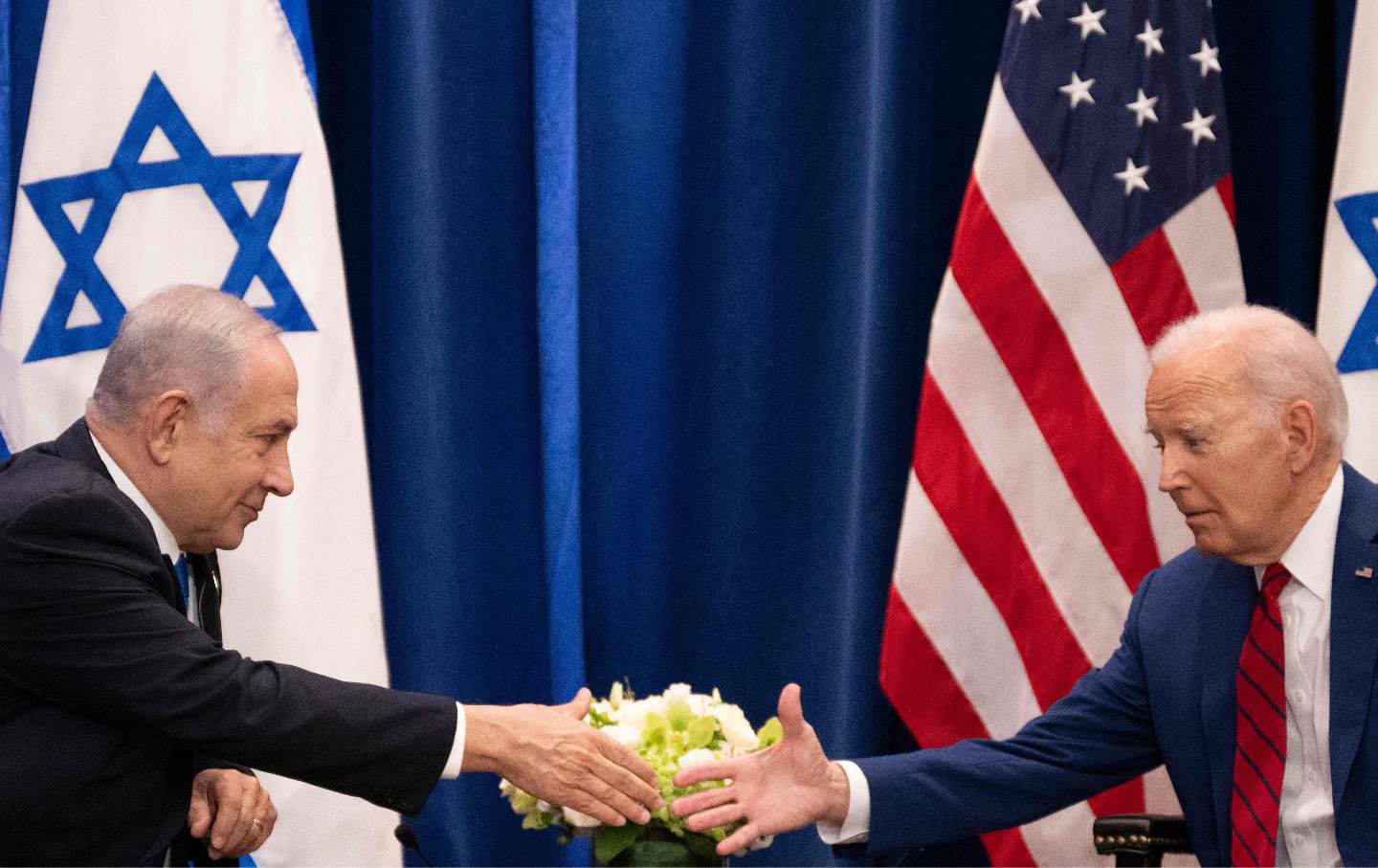Joe Biden’s Muddled Middle East Policy
On this episode of The Time of Monsters, David Klion on a president’s mix of hawkish policy and moderate rhetoric.

Here's where to find podcasts from The Nation. Political talk without the boring parts, featuring the writers, activists and artists who shape the news, from a progressive perspective.
On this episode of The Time of Monsters, David Klion joins Jeet Heer to discuss the President’s mix of hawkish policy and moderate rhetoric.
Advertising Inquiries: https://redcircle.com/brands
Privacy & Opt-Out: https://redcircle.com/privacy

US President Joe Biden shakes hands with Israeli Prime Minister Benjamin Netanyahu as they meet at the 78th United Nations General Assembly in New York City on September 20.
(Jim Watson / AFP via Getty Images)Joe Biden has often been described as among the most pro-Israel politicians in America, a characterization that has a large element of truth but misses some important nuances. As David Klion argues in a deeply researched essay for The Nation, Biden’s support for Israel has long been accompanied by rhetorical gestures indicating opposition to aspects of Israel’s policies, particularly the building of settlements. How do we make sense of this disjunction between action and rhetoric? Is Biden simply trying to placate his liberal base with cheap words? Or does his thinking on the topic indicate a fundamental incoherence in his worldview?
David joins the podcast to talk about Biden’s Israel policy, which leads into a wide-ranging discussion of the internal contradictions of Cold War liberalism and Biden’s larger policy thinking.In addition to David’s piece, we talk about topics that address this by Jonathan Guyer in The American Prospect and Noah Landar in Mother Jones.

Here's where to find podcasts from The Nation. Political talk without the boring parts, featuring the writers, activists and artists who shape the news, from a progressive perspective.
Matthew Yglesias, a very influential journalist and proprietor of the Slow Boring substack, has emerged as a divisive figure within the Democratic party. To admirers, he’s a compelling advocate of popularism, the view the Democratic party needing to moderate its message to win over undecided voters. To critics, he’s a glib attention seeker who has achieved prominence by coming up with clever ways to justify the status quo.
For this episode of the podcast, I talked to David Klion, frequent guest of the show and Nation contributor, about Yglesias, the centrist view of the 2024 election, the role of progressives and leftists in the Democratic party coalition, and the class formation of technocratic pundits, among other connected matters.
Advertising Inquiries: https://redcircle.com/brands
Privacy & Opt-Out: https://redcircle.com/privacy
